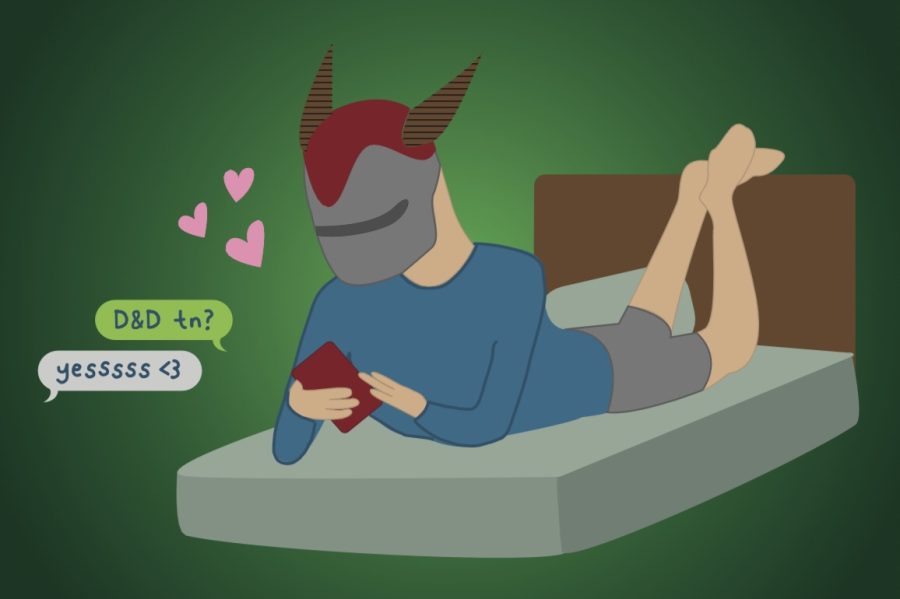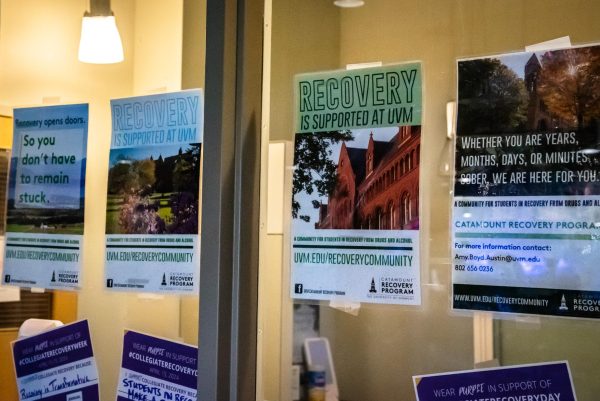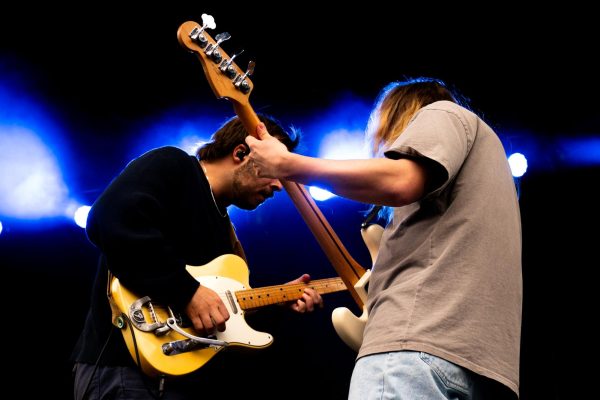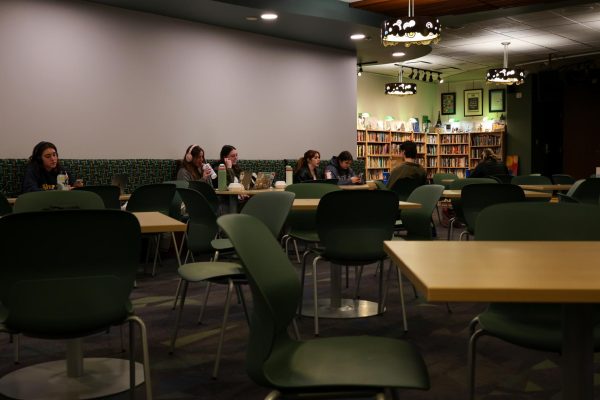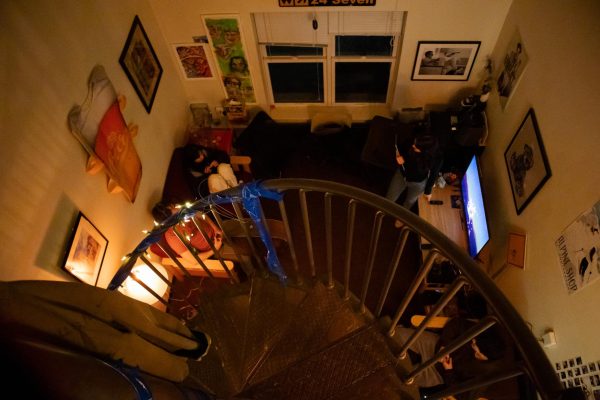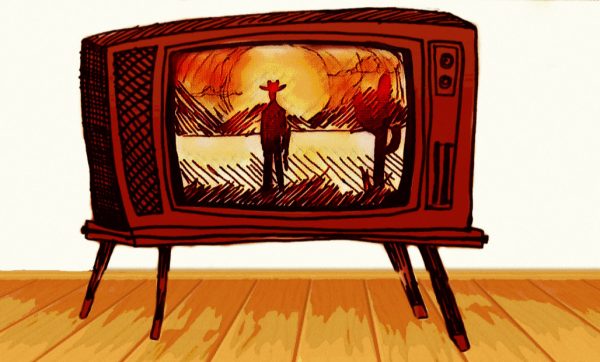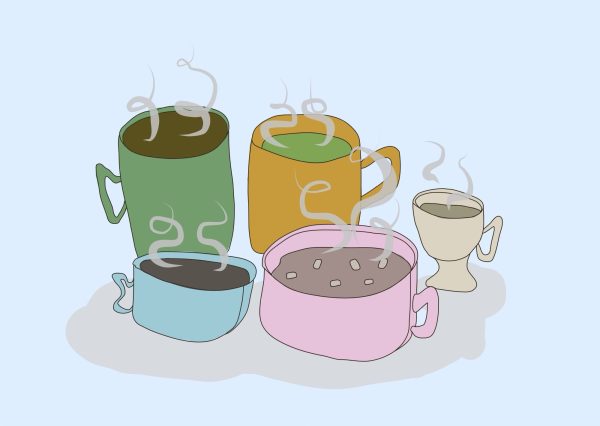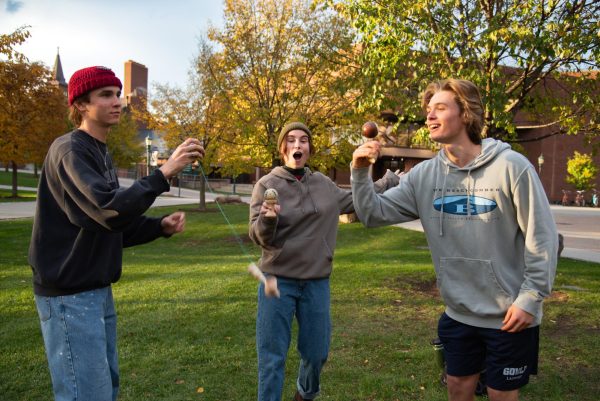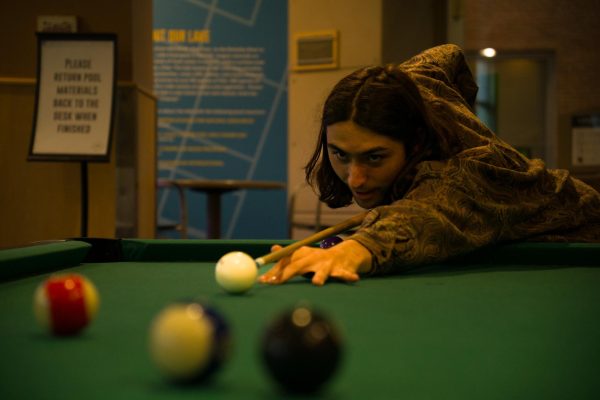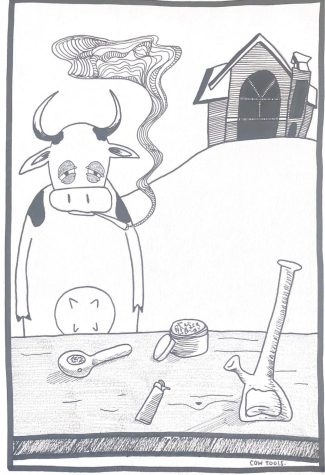Dungeons & Dragons slays students’ stress
As the average college student does, I prefer to relax by going on imaginary quests with my friends, drop-kicking gnomes and dueling giant top hat-wearing frogs along the way.
I had never considered playing Dungeons & Dragons before coming to UVM. But since a friend got me into it, D&D has become my preferred way to blow off steam after a stressful week, serving as an interesting alternative to yoga or whatever happens at frat parties.
D&D is a tabletop role-playing game in which players take on the identity of a character, rolling many-sided dice to determine their actions and abilities. Another person takes on the role of the “Dungeon Master,” laying out the story narrative as players work together to accomplish a task over multiple game sessions.
Used as a tool for online group therapy during the COVID-19 pandemic, D&D can help mitigate symptoms of depression, anxiety and isolation, according to a Feb. 18, 2021 Counseling Today article.
Despite frequent pop culture references and appearances in TV shows such as “Community,” “Freaks and Geeks,” “That ‘70s Show” and “Stranger Things,” negative stereotypes continue to deter potential players from D&D.
First-year Izzy DeGroot admits she was initially apprehensive when a friend encouraged her to start playing the game last month.
“I feel like there’s a stigma around it, how D&D players are hardcore and maybe don’t leave their basement or do anything else,” DeGroot said. “But it’s more the opposite of that; it’s a very social game.”
DeGroot likes to use her character to experiment with social norms, she said.
“It’s fun to have your character be like, ‘what if I just broke in somewhere and punched this person in the face?’” DeGroot said. “I personally would never do that, but my character would.”
Junior Colin Furch started playing D&D six years ago and said he seeks comfort in world-building.
“I like making different worlds so I can have something I can think about that isn’t directly tied to my life right now, especially with exams and trying to find housing and all these really stressful things,” Furch said.
Furch has recently shifted from a statistical game approach to simply enjoying the story, he said.
“It really is about being with other people and creating something new,” he said. “It’s cool to bring your own experiences and interpret how these characters that you make would act.”
Junior Zachary Rue has been playing D&D for five years and is a Dungeon Master of the D&D Discord server affiliated with the UVM Games Club.
Taking on the role of a character can help students feel more comfortable with themselves, Rue said.
“I like doing different voices for my characters, and a lot of people are like, ‘that sounds embarrassing, I don’t want to do that,’’’ Rue said. “Role-playing is cracking that shell.”
Rue enjoyed role-playing games before he even started playing D&D, he said.
“My friend and I would always create our own mini-worlds, and have our own established lore,” Rue said. “I love just escaping my head and going to a different world.”
Susan Fenstermacher, a senior lecturer in psychological science, discussed how D&D can help alleviate students’ social stress.
“Maybe people don’t think of [D&D] as being a social support network, but I think it’s valuable for that reason,” she said. “Kids have that built in the same way. They might get it from a sports team or being in the band.”
Role-playing games can expand a player’s “theory of mind,” the ability to infer the mental state of others, Fenstermacher said.
“We talk about how important it is for kids to engage in role-playing-type activities because it allows them to develop empathy,” Fenstermacher said. “Adolescents and adults can benefit from that too, even if it’s an imaginary kind of character.”
Role-playing games offer students an outlet to explore their sense of self, Fenstermacher said.
“If you’re trying on identities, even if it’s fictionalized, that might be a way of figuring out who you are and what aspects of your characters align with how you are and how you want to be,” Fenstermacher said.
“Productive escapism” engages us in a creative activity and can help us navigate our own world more effectively, according to a March 25, 2021 Terraskills article. But any type of escapism can be dangerously addictive, and too much of it can deter us from dealing with real-life challenges.
D&D, of course, cannot replace therapy. We shouldn’t ghost our therapists so that we can pour our hearts out to a Dungeon Master.
However, when we feel overwhelmed and seek solace, embracing something we consider a little “weird” might prove to be a pleasant surprise.


